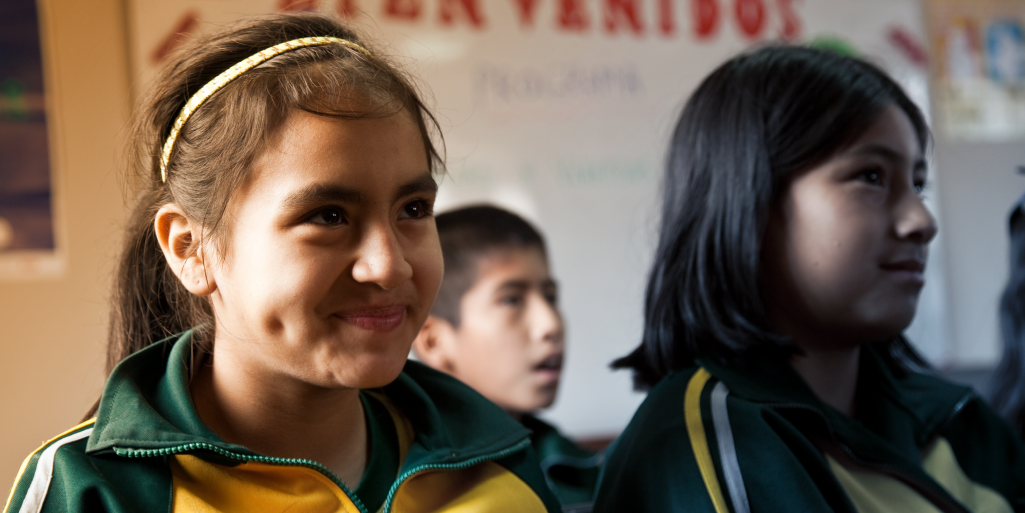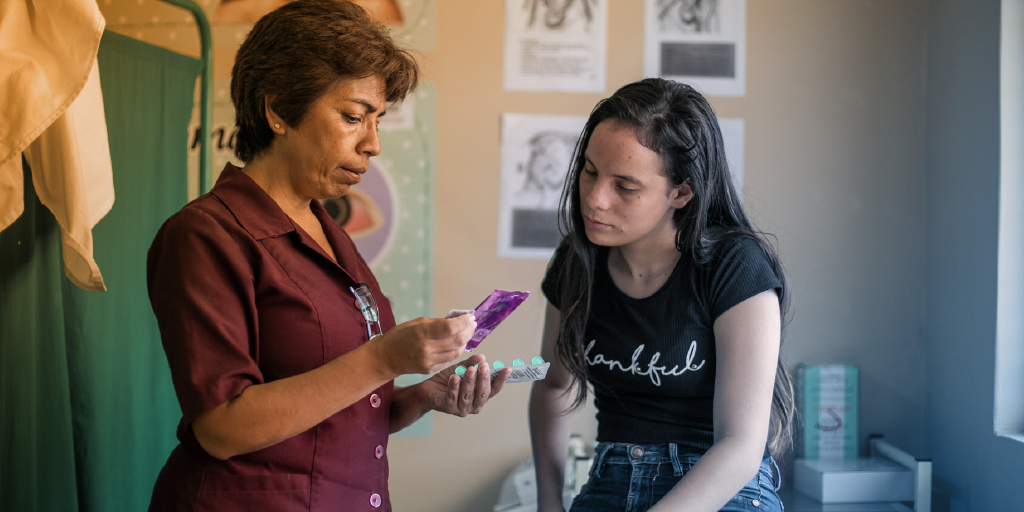The week of the Adolescent Pregnancy Prevention arrives this year in the midst of a pandemic, which has a catastrophic gender impact and exacerbates the pre-existing challenges of inequality and exclusion to the detriment of girls, adolescents and women from groups of special vulnerability.
Preventing adolescent pregnancy constitutes a great development and vulnerability challenge to the full exercise of rights, which has deepened due to the harmful effects of COVID-19 on the provision of sexual and reproductive health services at the first level of attention, on the delivery of sexual education and on the integration of comprehensive sexual education in the content of remote education programs. Likewise, gender-based violence and early unions have increased due to confinement measures taken to reduce the spread of the virus and the effects of the economic crisis in homes.
The UNFPA Country Office in Peru reaffirms its commitment to accompany the country in its efforts to prevent adolescent pregnancy through effective, multidimensional and multisectoral evidence-based interventions.

Adolescent motherhood has a negative impact on the development of opportunities for girls, adolescents and women, as it limits the exercise of their rights and contributes to the intergenerational transmission of poverty and vulnerability. Data shows that women who had their first child in adolescence achieve lower levels of education, and are more likely to be unemployed or to access precarious and lower-paid jobs.
In Peru, the proportion of adolescents who are already mothers or pregnant, 12.6% in 2018, has changed little in the last decade, despite the fact that public social spending for its prevention more than doubled (from S/10 million in 2012 to S/25 million in 2018). It is feasible to improve the quality of social spending through the implementation of effective evidence-based interventions to achieve sustained changes that benefit the development of adolescent girls and their families.
Today, the health crisis has the potential to exacerbate this problem, taking us back to levels recorded prior to the International Conference on Population and Development in Cairo in 1994. In this context, it is estimated that 119,000 women, youth and adolescents in Peru would interrupt the use of modern contraceptive methods in 2020, triggering more than 15,000 unwanted pregnancies and 7,000 pregnancy voluntary interruptions (Impact of COVID-19 on access to contraceptives, 2020).
Against this situation, Adolescent Pregnancy Prevention Week is an opportunity for all responsible parties to reaffirm their commitment to accelerate the implementation of comprehensive public policy packages, with effective evidence-based interventions that capitalize on good practices in the care of adolescent sexual and reproductive health, with an emphasis on preventing unintended pregnancies.
UNFPA is participating in the following initiatives developed within the framework of the Teen Pregnancy Prevention week (September 21 - 26).
Strengthening the capacities of health providers in adolescent sexual and reproductive health
On Tuesday, September 23rd, the virtual course on Sexual and Reproductive Health and Prevention of Adolescent Pregnancy of the Ministry of Health began, with technical assistance from the United Nations Population Fund in Peru and the sponsorship of the College of Obstetricians.
The course is focused on strengthening the competencies of 70 health professionals nationwide in the care of the adolescent population, within the framework of the exercise of their sexual and reproductive rights, with the objective of them having up-to-date knowledge and tools aimed at preventing unplanned teenage pregnancy. A central issue is access to modern counseling and contraception for adolescents who require it. The course will be taught through the virtual platform of the National Maternal Perinatal Institute and will last 10 weeks.

Educación Sexual Integral: orientar a docentes, tutores y especialistas
On Thursday, September 24th, the videoconference “Orientations for the prevention of adolescent pregnancy within the framework of distance education tutoring and orientation” was held, co-organized by the Ministry of Education and UNFPA, with the attendance of more than 300 tutors and specialists from all over the country summoned by MINEDU. Videoconference.
UNFPA has contributed with MINEDU in the generation of guidelines and material to integrate Comprehensive Sexual Education in the Aprendo En Casa platform. Among these contributions, the elaboration of two friendly infographics with guidelines to prevent adolescent pregnancy, aimed at parents and teachers, stands out. The infographics reveal the problem of adolescent pregnancy in the educational context and provide pedagogical tools to address the issue of distance education and with the participation of families.

Humanitarian response to leave no one behind: actions for refugees and migrants
Peru is the second host country in the world to the Venezuelan migrant and refugee population. It is estimated that around 830,000 people from Venezuela reside in the country, of which approximately 33,200 would be adolescents between 15 and 19 years old (MISP Calculator, 2020).
The situation of human mobility increases vulnerabilities in the face of an unplanned pregnancy in adolescents due to the fact that, among other reasons, their social support networks are fragmented as they have separated from their peers and friends, and even from their closest relatives; and they have fewer possibilities of access to school and, therefore, to comprehensive sexual education as a protective factor.
Additionally, they are unaware of their right to access sexual and reproductive health services that the Ministry of Health must provide free of charge, or they do not go to health centers for fear of revealing their immigration status and of being rejected because of discrimination or xenophobia. The reduction of programs that could facilitate their access to sexual and reproductive health services due to the pandemic significantly affects them, as well as the adolescents in their host communities.
UNFPA has been defining specific actions to meet the priority needs of Venezuelan migrant adolescents, recognizing their right to receive free modern contraception and counseling, regardless of their immigration status. As part of these actions, various graphic pieces have been developed that will be disseminated through the media that Venezuelan adolescents consult most frequently and which they access to maintain ties with their families in their country of origin.


